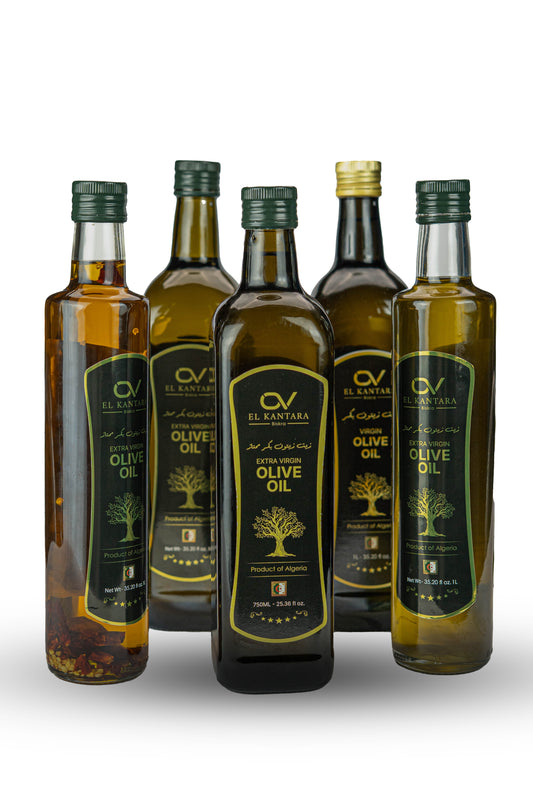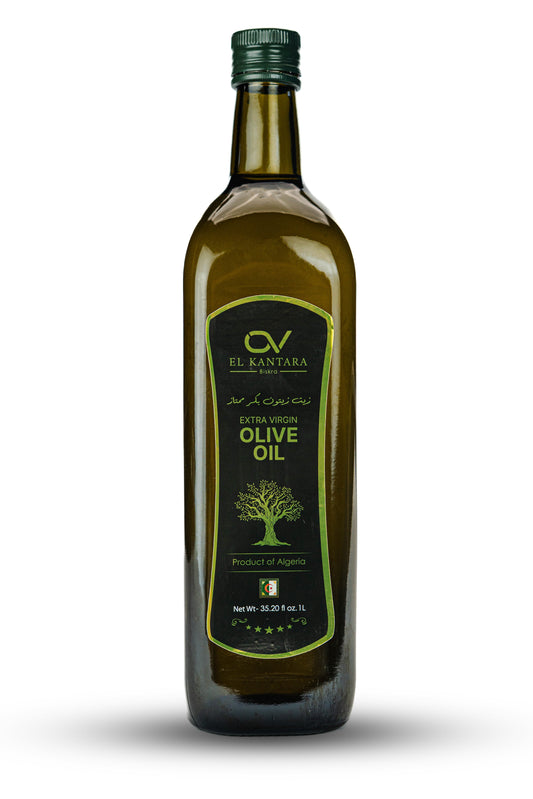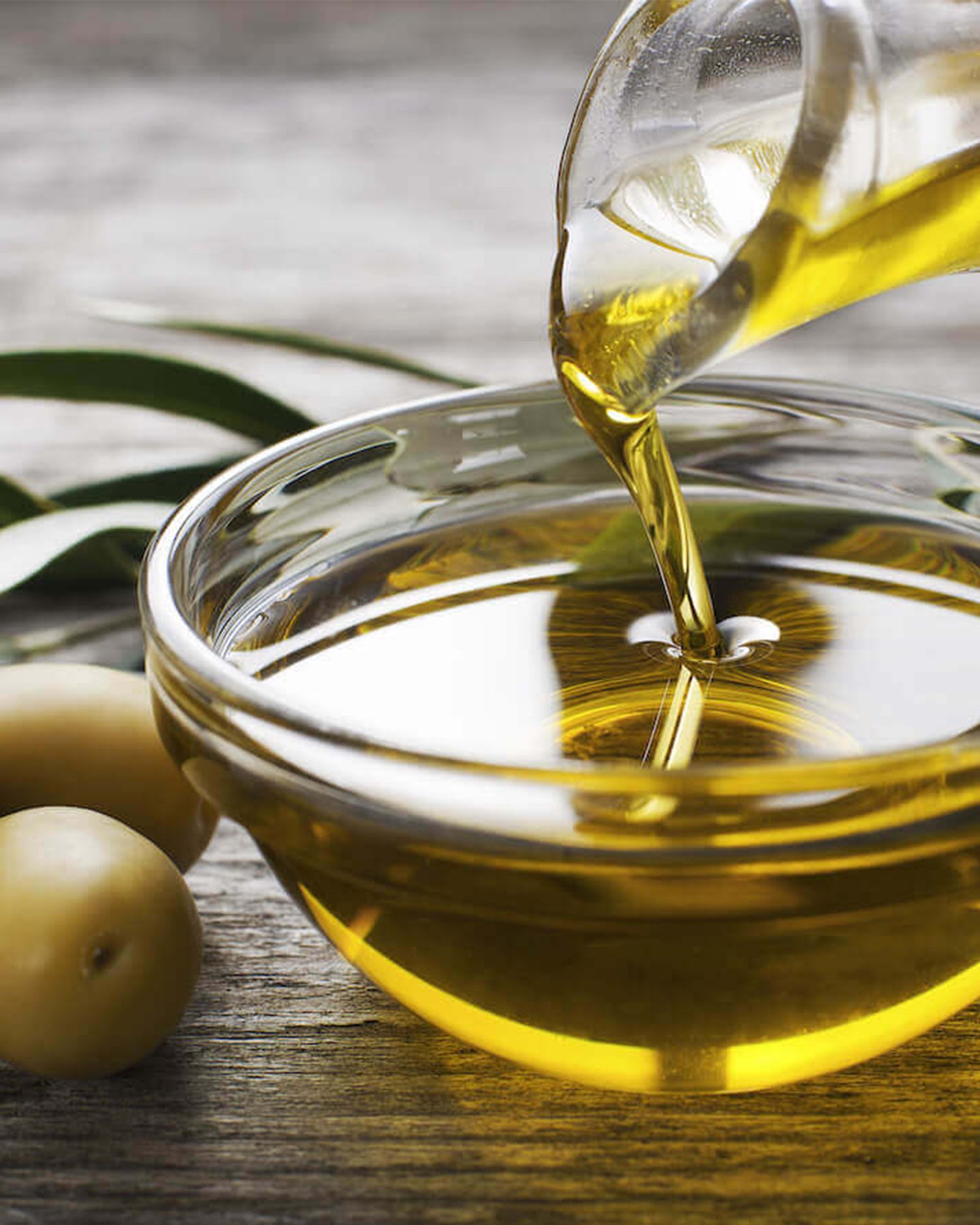
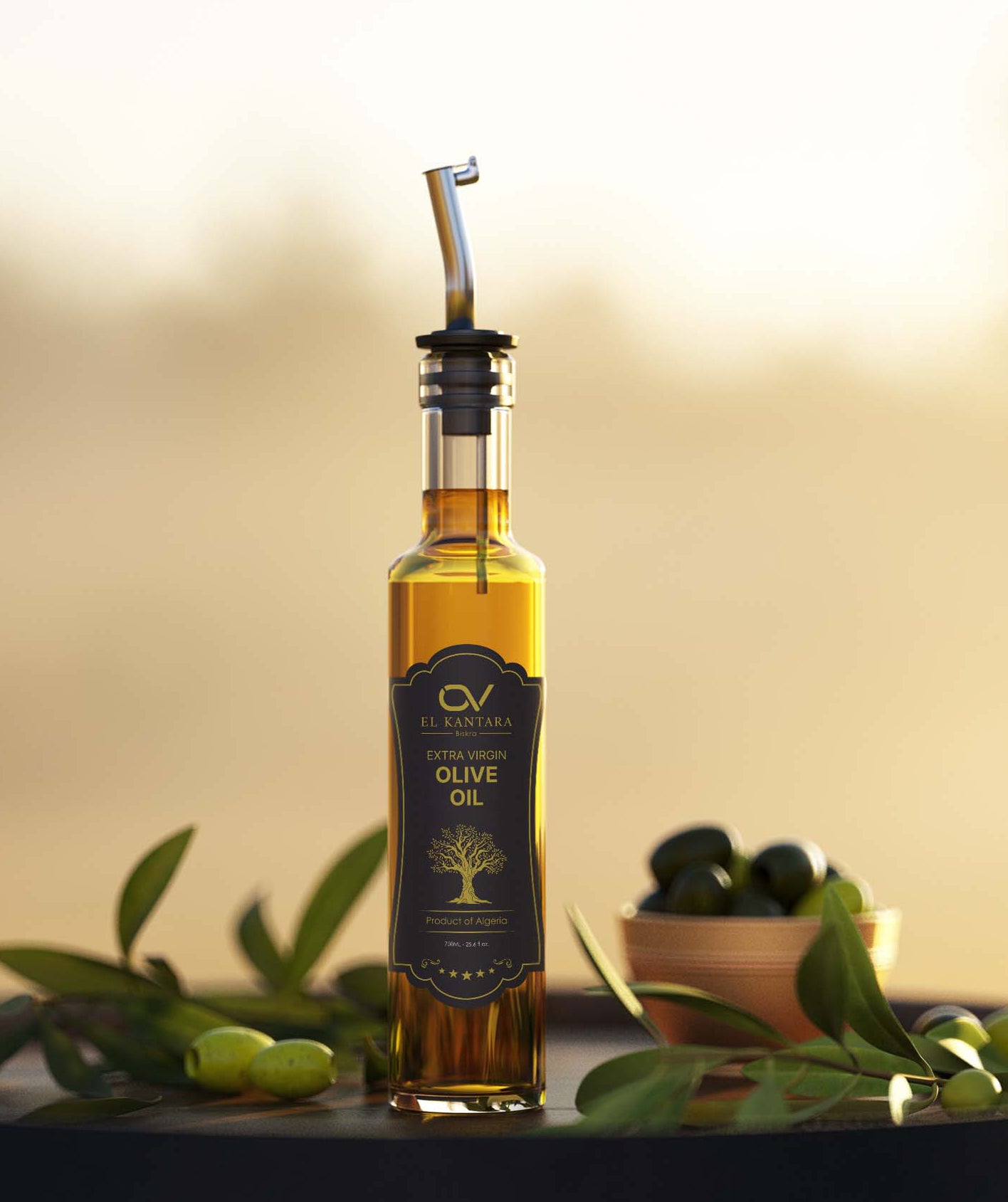
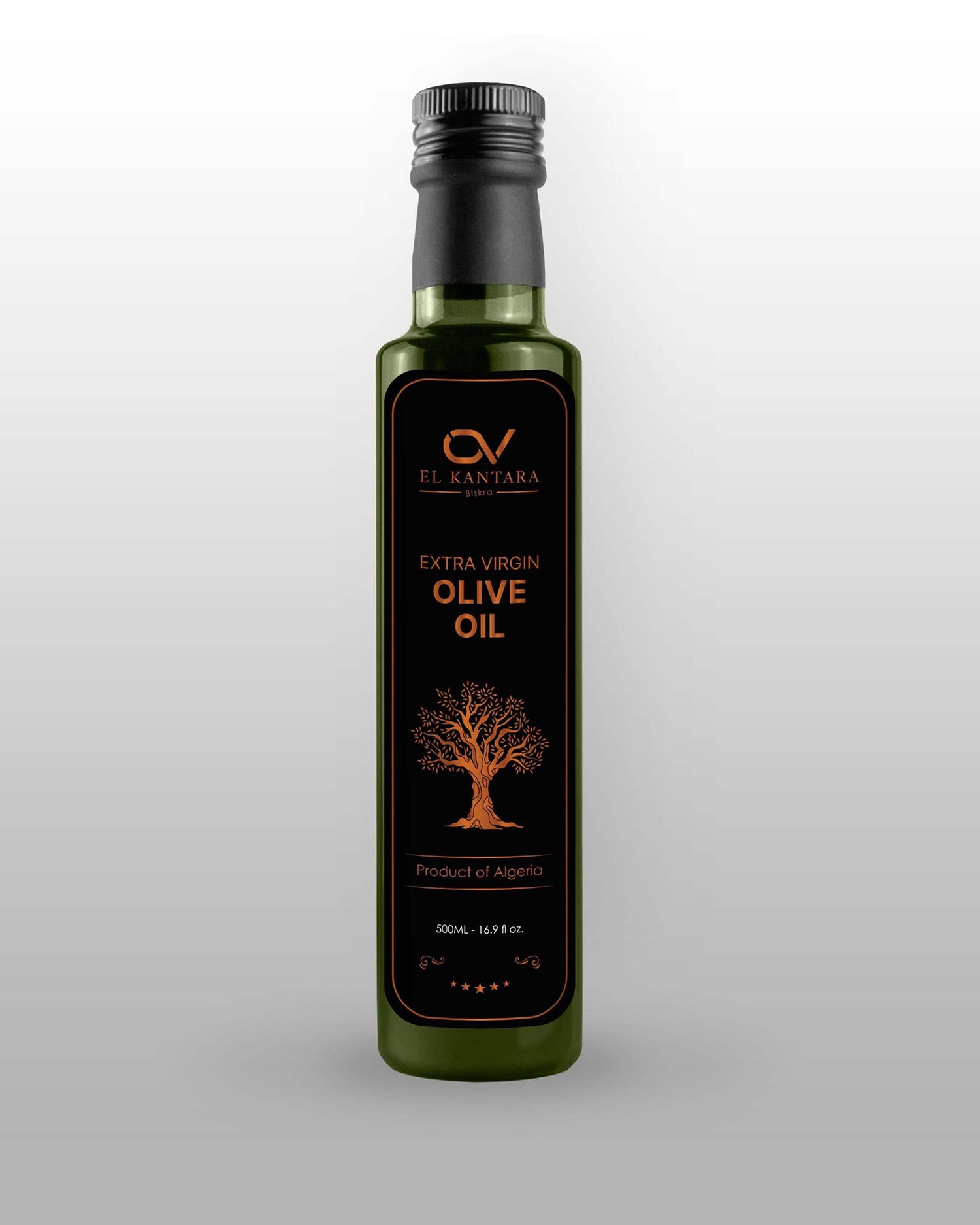
Algeria's Olive Oasis: Sustaining Growth, Nurturing Health, and Embracing Global Excellence
Welcome to Algeria's thriving Olive Oasis, where tradition meets innovation in the heart of our rich agricultural landscape. With an expansive 440 thousand hectares dedicated to olive trees. Algeria proudly produce over 100 million liters of exquisite Olive Oil annually. Our commitment to olive growing faces the current challenges head-on, addressing climate change, ensuring food security, and fostering sustainable development.
Our Olive Oasis is not confined to specific regions; rather, its production capacity spans across every corner of our diverse landscape. We take pride in achieving self-sufficiency, with an annual olive oil production exceeding 100 million liters. This not only ensures our domestic needs but also propels our nation's development through impactful exports.
At Algeria's Olive Oasis, we celebrate the resilience of olive growing, embodying a commitment to sustainability, environmental stewardship, and agricultural excellence. Join us on a journey that blends tradition with modernity, creating a legacy that nourishes both our people and the world.
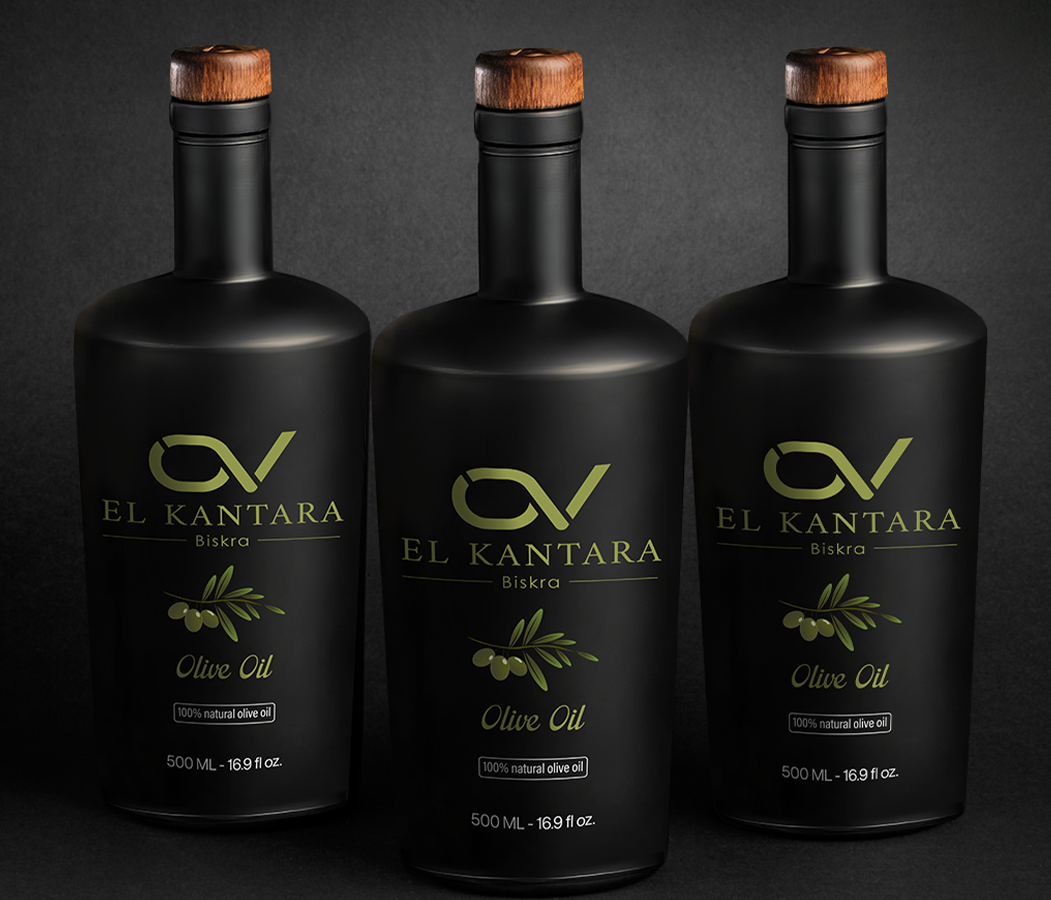
Biskra's Finest: Premium Olive Oil
Premium Quality Product Olive Oil Obtained directly from olives and solely by mechanical means. Family artisanal harvest andindustrial from the region of ‘Biskra’ Sahara Gate of Algeria.In 2023, we proudly became one of the pioneering farms in our region with 40,000 Olive trees over 74 acres.
The traditional way to make olive oil involves pressing the olives between stone wheels. This is where the term “Cold Pressed” comes from. The yield is low - only about 16% of an olive is oil. The amount of oil obtained can be increased by heating up the pulp, but this decreases the quality of the oil (the polyphenols drop, and the free fatty acids increase), resulting in an olive oil that tastes rancid. That's why so much importance is attached to the concept of cold pressing. Nowadays most oils are centrifuged rather than pressed but is the temperature that makes the difference in quality.

